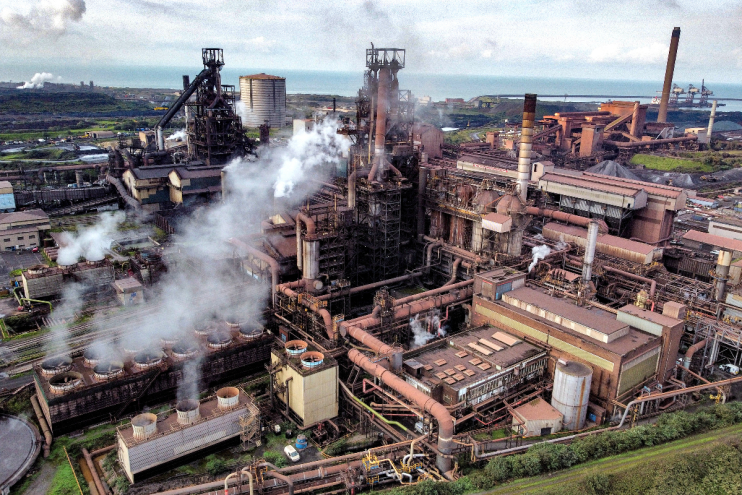Tata Steel: Labour demands urgent support for workers facing redundancies

Labour is calling for the government to take urgent action to cover thousands of workers facing redundancy at the country’s biggest steel plant.
Tata Steel is planning to replace blast furnaces at its Port Talbot site with an electric arc furnace – a greener method of production which needs fewer workers – putting more than 1,900 jobs at risk.
Shadow Welsh secretary Jo Stevens has demanded the government acts faster to get support in place for workers and communities.
Labour has called for dedicated employment advisers to be placed in the community to coordinate and deliver support for those affected.
The party has committed to invest up to an additional £2.5bn – on top of the government’s planned £500m – in the UK steel industry during the next parliament if it wins the general election.
Ms Stevens said: “Thousands of jobs are at risk in Port Talbot and steel communities across south Wales because Conservative ministers have failed to act, with devastating economic shock waves that will reverberate for decades.
“The Welsh secretary’s transition board looks more like a talking shop.
“Labour doesn’t want to see a single job go at the site, but Conservative ministers must up their game and prepare at much greater speed to protect workers and communities.”
Tata Steel’s proposed changes have triggered huge backlash, with around 1,500 workers voting to strike for the first time in 40 years.
However, the company said even more jobs would be lost without the operational updates, with its UK operations allegedly making combined losses of “£1.7m a day”.
Bosses have warned workers they would lose the “enhanced” redundancy package that was on offer if they went ahead with industrial action.
A Tata spokesperson said: ‘We understand how difficult this period is for our employees and we are determined to support them as much as we can.
“That is why we have committed to our most generous voluntary redundancy package, which will mean an employee earning £40,000 per annum with 25 years of service could be eligible to receive a total payment of £55,000.
“Via the Transition Board, we are also investing £20m – together with £80m from the UK Government – which will provide new training, reskilling and help finding work as well as a plan for local regeneration and economic growth for the next decade.
“We are grateful for the Transition Board’s support and expertise at a time when we are continuing discussions as part of the formal consultation period with our Trades Union partners.
“We are eager to progress to local consultation in order to give our people more clarity and certainty, and remain committed to working closely with all our regional and national stakeholders to ensure the best outcome for our workforce and wider communities.”
Alasdair McDiarmid, assistant general secretary for one of the unions representing the workers, Community, added: “It’s vital that all steelworkers affected by Tata’s damaging plans get timely access to training and job search support, and the Labour Party is right to press the company and government ministers on this.
“We are clear that this offer should be accompanied by an employment guarantee which ensures that those impacted receive wage support right up until they re-enter employment.
“We believe this would be the best use of the transition board’s considerable resources.”
A UK Government spokesperson said: “This government is supporting the steel industry more than any before it and has put in place one of the biggest support packages in history, with a £500 million grant as part of the £1.25 billion commitment by Tata Steel to secure 5,000 jobs across the UK and safeguard the future of the Welsh steel industry.
“This includes the £100 million awarded to the Port Talbot Transition Board, including £80 million in UK Government funding, which is investing directly in skills, training and job creation for the workers affected. Without government action, many thousands more jobs would have been lost at Port Talbot and in the wider supply chain.”